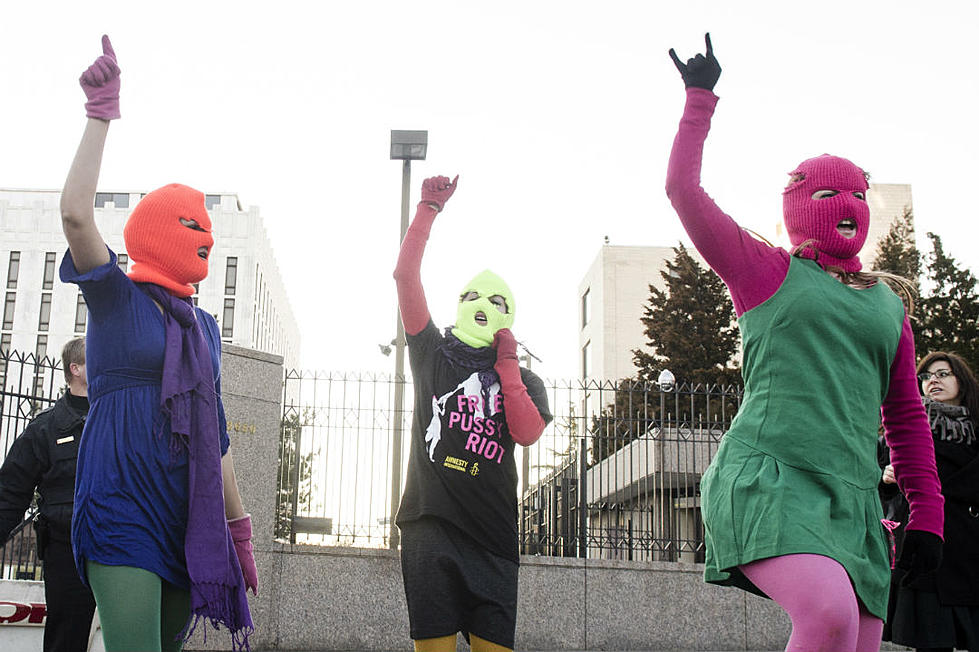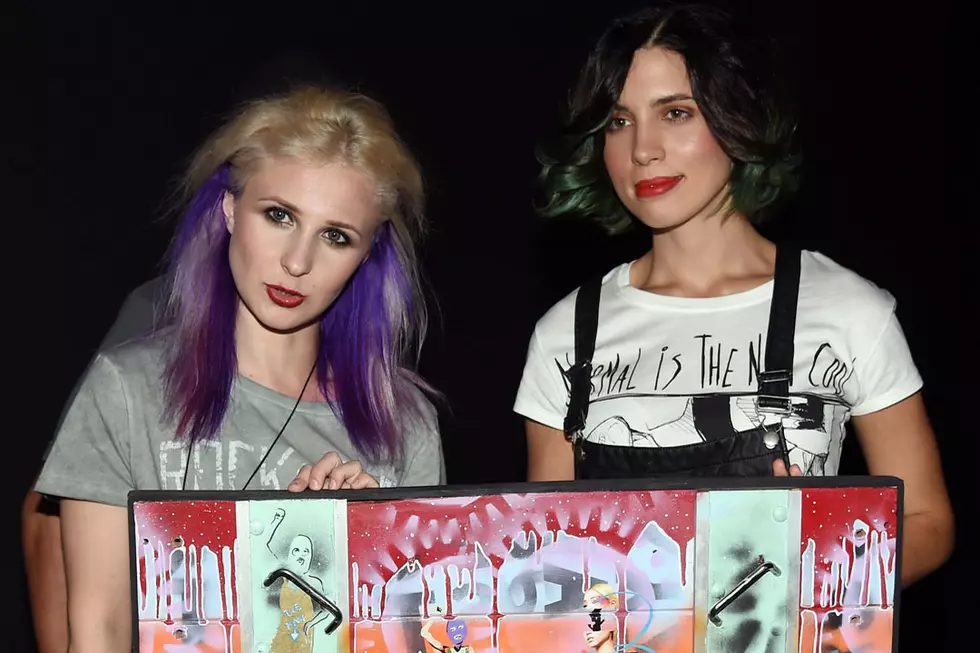
Who Is Pussy Riot?
Who is Pussy Riot? No band in the world has received more attention lately than this all-girl Russian punk rock collective, thanks to the imprisonment of three members in February for hooliganism after they performed a "punk prayer" in protest of Russian President Vladimir Putin at a church in Moscow.
On Friday (Aug. 17), those three members -- 23-year-old Nadezhda Tolokonnikova, 24-year-old Maria Alekhina and 29-year-old Yekaterina Samutsevich -- were convicted of the charge and sentenced to two years in a "penal colony" for the incident. That much has been widely reported, and many people have seen the video of the church performance that got them in trouble in the first place. But there must be more to Pussy Riot, right? Who are the woman behind those brightly-colored balaclavas?
There are more members of Pussy Riot, who formed in August 2001, than the three who arrested; in fact, some reports claim there are up to 10 performers in the band, plus an additional 15 involved in various support roles such as producing its videos and scheduling and promoting its events.
But while photographs of the three jailed members are being splashed across the front pages of newspapers the world over, the remaining members plan to continue recording music while remaining hidden under those colorful balaclavas, purposefully and completely anonymous. Very little is known about the anonymous members who remain free to rage against the Putin machine, but the three members currently behind bars aren't so lucky.
Tolokonnikova, considered the ringleader of Pussy Riot, has quite a background in the subversive. She was previously a member of the confrontational art group called Voina (Russian for War), which mounted several high-profile stunts, including painting a 200-foot penis on a drawbridge in St. Petersburg, holding a mock orgy inside a Moscow art museum and even torching a police cruiser. Voina received national coverage for its controversial political acts.
Alekhina, meanwhile, the mother of a 5-year-old son, is a poet with a long history of charity work and environmental activism. A friend and fellow charity worker called her "a born activist," reported the AP, while a letter from a Moscow charity that was read in court to establish her character described her as "a reliable and trustworthy person."
Samutsevich is described as a technological genius who studied at Moscow Energy University and even held a job in a top secret department designing software for Russia's top nuclear submarine program. She soon quit that gig to pursue a degree in media studies at a renowned Russian art school. "[She] turned to art for answers about modern times," Alexei Shulgin, one of her professors, told the AP.
The incident at the church is Moscow wasn't the first time Pussy Riot had a run-in with the long arm of the law. They previously were arrested after staging a performance of the anti-Kremlin song 'Putin Got Scared' in Moscow's Red Square while lighting off colored smoke bombs and waving a purple feminist flag. Several members were detained for about five hours in a police precinct and charged with holding an unauthorized rally.
Pussy Riot are obviously a band, but the more one reads about them, the more one thing becomes clear: They are less of a punk band for music's sake than a politically-driven guerrilla organization that uses punk rock to deliver its message -- for all the attention they've received, Pussy Riot have recorded a scant six songs to date. We're “on the border between punk rock and contemporary art," reads one statement from the band.
And while several Western rock acts are among their cited inspirations -- with Oi! groups like Angelic Upstarts, Cockney Rejects and Sham 69 and '90s feminist riot grrrl outfits like Bikini Kill and Huggy Bear among the most notable -- the band's music has a distinctly Russian slant (they sing, after all, in Russian) and has no interest in being a part of the music industry as we know it.
“A lot of credit certainly goes to Bikini Kill and the bands in the riot grrrl act," one member, only known as Garadzha, said in an interview with Vice. "We somehow developed what they did in the 1990s, although in an absolutely different context and with an exaggerated political stance, which leads to all of our performances being illegal. We’ll never give a gig in a club or in any special musical space.”
So don't expect Pussy Riot to mount a U.S. tour with Rancid, Green Day or even Rage Against the Machine any time soon. But at the same time, Pussy Riot look to continue pushing boundaries with their incendiary music. On the day the conviction and two-year sentence was handed down, Pussy Riot released a new tune titled 'Putin Lights Up the Fires.' The way things are going, expect Pussy Riot to be on hand to keep putting those fires out.
Watch a Pussy Riot Video
More From Diffuser.fm









